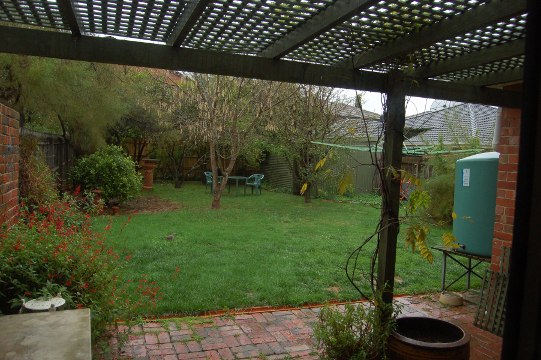1. Empty laundry and loo of clothes dryer, odds-and-ends, etc, as far as possible, since both rooms need to be done.
Amazingly, these 2 (and the back hall) are on a concrete slab at ground level, 1 step below the kitchen, which is - along with the rest of the house, on stumps.
The large back yard slopes down towards the house, so heavy rains are a pain.
The loo, laundry and back hall are at the same level as the bricks in the patio, photographed in the rain today:

Why did they build the house like that?, I hear you ask!
Yes, well, back in the late 1940s, that's how they did things around here.
2. Strip off some plaster, since the paint and plaster are impregnated with salt from uprising water:

3. Paint with goo. This process is called tanking.
It stops horizontal penetration of water, as distinct from uprising water.
4. Drill holes:

Noisy! Very noisy!
5. Pump holes full of silicon.
Not so noisy.
The silicon re-establishes (if there ever was one) a horizontal DPC 'damp proof course' to stop uprising water.
6. Wait 2 weeks.
7. Renew plaster.
8. Pay $1,800.00 (20% up front) for this form of in-door entertainment :-(.


